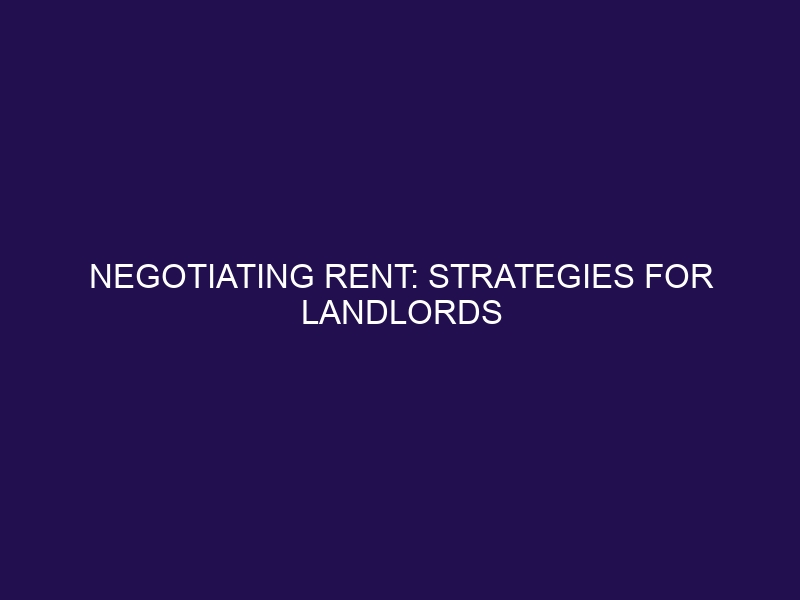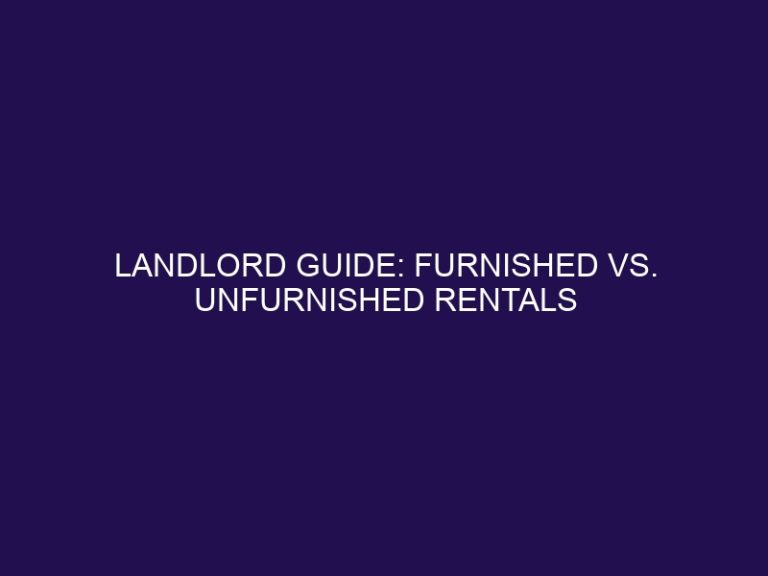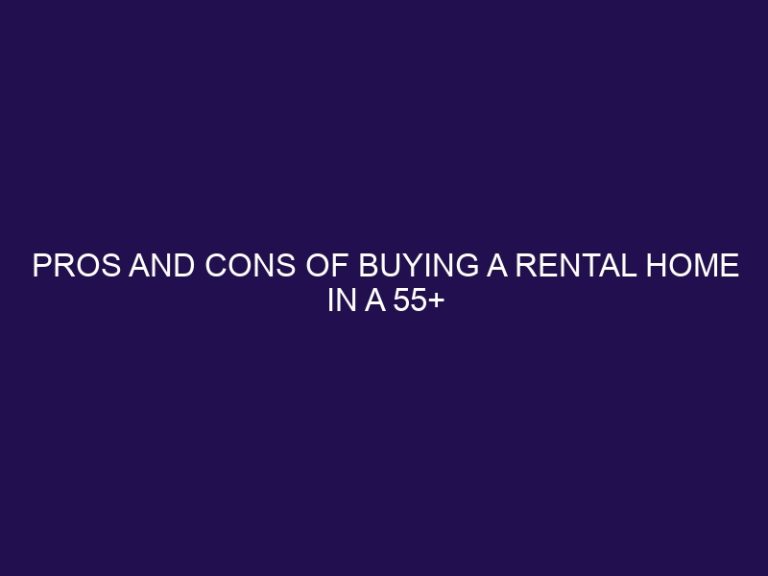Negotiating Rent: Strategies for Landlords
Negotiating rent is the process of discussing and coming to an agreement on the amount of rent to be paid for a rental property. As a landlord, it is important to negotiate rent as it can help you secure reliable and long-term tenants, ensure a steady stream of income, and maintain a positive landlord-tenant relationship.
However, several factors can affect rent negotiations, such as the location and condition of the property, as well as the demand for rental properties in the area.
To successfully negotiate rent, landlords can employ various strategies, such as:
- Having knowledge of the market
- Offering incentives
- Being open to compromise
However, there are also common mistakes that landlords should avoid, such as:
- Not understanding the market
- Being unwilling to compromise
- Not effectively communicating with tenants
In difficult rent negotiations, it is important for landlords to remain calm, listen to the tenant’s concerns, and offer solutions and alternatives.
Some tips for successfully negotiating rent as a landlord include:
- Starting with a fair price
- Being prepared and informed about the market
- Building a good relationship with tenants
These strategies can help landlords secure mutually beneficial agreements with tenants and maintain a positive and professional landlord-tenant relationship.
What is Negotiating Rent?
Negotiating rent is the process of discussing and reaching an agreement between landlords and tenants on the terms of a rental agreement. This includes determining the monthly amount, lease duration, and any additional fees. It is a collaborative process where both parties communicate to find terms that are mutually acceptable and beneficial.
Why is it Important for Landlords to Negotiate Rent?
Negotiating rent is crucial for landlords to ensure fair returns, maintain tenant satisfaction, and address market fluctuations. It is important for landlords to negotiate rent in order to build positive relationships, retain long-term tenants, and adapt to economic changes.
Some suggestions include:
- offering lease extensions with minimal rent increases
- considering tenant improvements
- analyzing local rental trends
What Factors Affect Rent Negotiations?
In the world of real estate, rent negotiations are a common occurrence between landlords and tenants. However, as a landlord, it is important to understand the various factors that can impact these negotiations. In this section, we will discuss the key elements that can influence rent negotiations, including the location and condition of the property, as well as the demand for rental properties in the area. By understanding these factors, landlords can better navigate rent negotiations and make informed decisions for their rental properties.
1. Location of Property
- Research the neighborhood to understand the location of the property in relation to amenities and transportation.
- Analyze the area’s rental trends and the average rent for similar properties.
- Consider the neighborhood’s safety and appeal to potential tenants.
2. Condition of Property
- Thoroughly inspect the property to assess its current condition.
- Identify any maintenance or repair needs that may impact negotiation.
- When evaluating the condition of the property, consider its age and amenities.
3. Demand for Rental Properties
- Conduct thorough research on the local rental market to gain insight into the demand for rental properties.
- Evaluate the occupancy rate and vacancy trends to accurately gauge the demand.
- Take into account factors such as job growth, population influx, and housing supply to determine the demand for rentals.
When analyzing the demand for rental properties, it is crucial to thoroughly examine local economic indicators, demographic shifts, and housing market dynamics for a well-informed perspective.
What are the Different Strategies for Negotiating Rent?
Negotiating rent can often be a challenging and delicate process for landlords. However, by utilizing effective strategies, this process can be smoother and more successful. In this section, we will discuss the various strategies that landlords can use to negotiate rent with their tenants. These include knowing the market, offering incentives, being open to compromise, and considering the benefits of long-term tenants. By understanding and implementing these strategies, landlords can achieve a mutually beneficial agreement with their tenants.
1. Know Your Market
- Research the local rental market trends, including average rents and vacancy rates, to accurately know your market.
- Understand the demographics and preferences of potential tenants in the area to better cater to your market.
- Assess the competition to gauge the value of your rental property accurately and stay competitive in the market.
2. Offer Incentives
- Offer flexible lease terms, such as a longer lease period or a rent freeze, as incentives for potential renters.
- Provide upgrades or improvements to the rental property as an added incentive.
- Include utilities or amenities in the rent to entice potential renters.
3. Be Willing to Compromise
- Listen to tenant’s concerns and understand their needs.
- Identify areas where compromise is feasible without compromising the property’s value.
- Offer alternatives that address both parties’ concerns and be willing to compromise when necessary.
Pro-tip: Flexibility in negotiation can foster positive landlord-tenant relationships.
4. Consider Long-Term Tenants
- Offer lease extensions with fixed rent increases.
- Provide incentives for long-term stays, such as maintenance services.
- Establish transparent communication for lease renewal negotiations.
- Encourage long-term tenants to contribute to stable rental income, reducing turnover costs for landlords.
Long-term tenants contribute to stable rental income, reducing turnover costs for landlords.
What Are Some Common Mistakes to Avoid When Negotiating Rent?
Negotiating rent can be a tricky process for landlords, especially if they are not well-informed about the market and their tenants’ needs. In this section, we will discuss some common mistakes that landlords should avoid when negotiating rent. From not knowing the current market trends to not considering the tenant’s needs, we will cover the potential pitfalls and how to overcome them. With these strategies in mind, landlords can approach rent negotiations with confidence and success.
1. Not Knowing the Market
- Thoroughly research the local rental market.
- Familiarize yourself with the average rental rates in the area.
- Analyze the demand and supply dynamics for rental properties.
- Consider seeking professional advice to gain a deeper understanding of the market.
In 1637, the Dutch tulip market experienced a speculative bubble, with tulip bulbs reaching incredibly high prices before crashing and causing financial turmoil.
2. Not Being Prepared to Compromise
- Understand Tenant’s Needs
- Identify Areas for Flexibility
- Offer Trade-offs
- Communicate Openly and Respectfully
Pro-tip: Being flexible and willing to compromise can greatly improve landlord-tenant relationships and result in mutually beneficial agreements.
3. Not Communicating Effectively
- Actively listen to the tenant’s concerns.
- Clearly and transparently express yourself.
- Regularly provide updates and feedback during the negotiation process.
- Use empathy to gain a better understanding of the tenant’s perspective.
4. Not Considering the Tenant’s Needs
Neglecting the needs of tenants during rent negotiations can result in dissatisfaction and high turnover rates. It is crucial for landlords to prioritize understanding tenant concerns, providing flexible lease terms, promptly addressing maintenance issues, and fostering a positive living environment to encourage long-term, mutually beneficial tenancies.
How Can Landlords Handle Difficult Rent Negotiations?
As a landlord, one of the trickiest situations to navigate is negotiating rent with a difficult tenant. In this section, we will discuss effective strategies for handling these types of negotiations. First, we will emphasize the importance of remaining calm and professional, even in the face of tense discussions. Then, we will explore the value of actively listening to the tenant’s concerns and addressing them with empathy. Finally, we will discuss the benefits of offering solutions and alternatives to find a mutually beneficial agreement. These tactics will help landlords navigate difficult rent negotiations with confidence and professionalism.
1. Stay Calm and Professional
- Maintain composure and professionalism during negotiations.
- Remain courteous and respectful.
- Keep discussions focused on facts and figures.
2. Listen to the Tenant’s Concerns
- Actively listen to the tenant’s issues and concerns.
- Empathize with their perspective to build rapport.
- Seek mutually beneficial solutions through open dialogue.
By understanding and addressing tenant concerns, landlords can foster positive relationships and secure long-term tenancies.
3. Offer Solutions and Alternatives
- Assess Tenant’s Needs: Understand what the tenant requires and propose alternative solutions to meet their concerns, including various rental terms or property features.
- Flexibility: Offer flexible lease terms or adjustments to accommodate the tenant’s requests.
- Discuss Options: Present different options and alternatives to negotiate mutually beneficial terms.
Pro-tip: Emphasize the value of long-term tenancy to showcase stability and build a positive landlord-tenant relationship.
What Are Some Tips for Successfully Negotiating Rent?
As a landlord, negotiating rent can be a challenging but necessary task. To ensure a successful negotiation, it is important to approach the process with a clear strategy. In this section, we will discuss some useful tips for negotiating rent that can help you achieve a fair and mutually beneficial agreement. From starting with a fair price to being prepared and informed, these tips will guide you through the negotiation process.
1. Start with a Fair Price
- Research the local rental market to determine a competitive starting price.
- Consider the property’s unique features when setting the initial rent.
- Factor in the current condition and demand for rental properties in the area.
Starting with a fair price sets a positive tone for rent negotiations, fostering a mutually beneficial landlord-tenant relationship.
2. Be Prepared and Informed
- Research: Gather data on local rental rates, market trends, and tenant preferences.
- Know Laws: Understand rental laws, rights, and responsibilities as a landlord.
- Prepare Documents: Have lease agreements, rental history, and property details ready.
Informed landlords have a competitive edge in negotiating rent and being prepared and knowledgeable.
3.
- Location of Property
- Condition of Property
- Demand for Rental Properties







